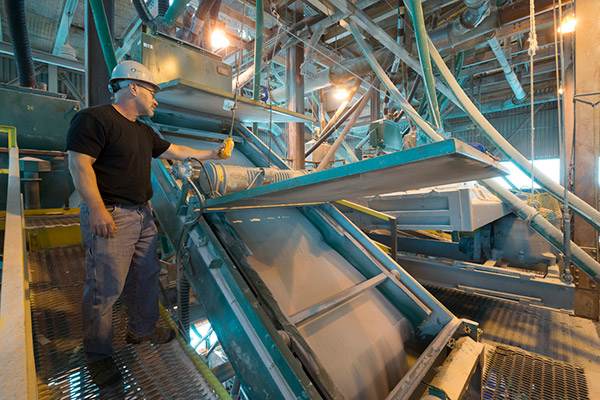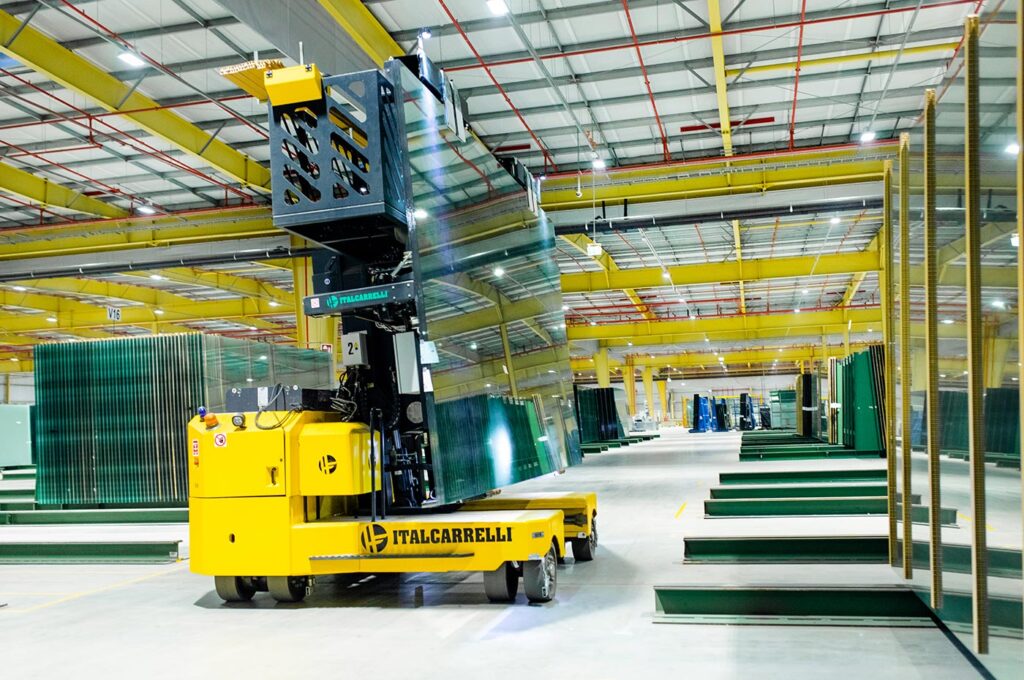How to Find Jobs in the Glass Manufacturing Industry
Finding the right job in glass manufacturing requires understanding a complex industry, building practical skills and using modern job‑search tactics. The Glass Manufacturing Industry Council (GMIC) represents the U.S. glass sector and works with employers and educators to build a skilled workforce. As automation, sustainability and digitalization reshape production lines, qualified workers are in high demand. According to the U.S. Bureau of Labor Statistics, employment of glaziers—the tradespeople who install glass in buildings—is expected to grow about 3 % from 2024 to 2034, with roughly 5 100 openings per year as experienced workers retire. The broader “glass and glass product manufacturing” industry employs about 129 000 people in the United States, so there is ample room for newcomers to join.

This guide draws on GMIC resources, government data and industry experience to help you build the knowledge, skills and network needed to land your next role in glass manufacturing.
Get to Know the Industry
Glass manufacturing encompasses several market segments:
- Flat glass – large sheets used in architectural glazing, automotive windshields and solar panels. Workers may operate float lines, tempering furnaces or laminating machines, and roles range from furnace operators to quality inspectors.
- Container glass – bottles and jars for food, beverages and pharmaceuticals. Hot end forming, annealing, cold‑end inspection and packaging all require specialized skills.
- Fiberglass – insulation and composite materials. Operators manage fiber‑drawing machines and bulk materials.
- Specialty/scientific glass – electronics substrates, laboratory glassware and optical components. These roles often require precise fabrication and clean‑room experience.
Across all sectors you’ll find jobs in production, maintenance, quality control, environmental health and safety and automation. Modern plants increasingly seek technicians versed in sensors, programmable logic controllers (PLCs) and data analysis. If you prefer hands‑on assembly, consider machine operator or inspection roles; if you enjoy problem‑solving, maintenance and reliability positions offer long‑term growth. For those interested in new materials or energy efficiency, sustainability and R&D roles support furnace upgrades and recycling programs.
What do glass workers actually do?
Government job profiles provide insight into daily tasks. Glaziers remove old glass, cut new panes, fit sashes and install windows or facades. They use suction handles and cranes to manoeuvre large panels and seal edges with weatherproof compounds. Glaziers typically learn through three‑ to four‑year apprenticeships and must be comfortable working at heights.
Glass forming and finishing machine operators work inside plants. These workers:
- Operate multi‑function process control machinery to melt, form, cut and finish glass.
- Heat, anneal, temper or form float glass and coat products with metals.
- Maintain shift logs and adjust gauges or PLC screens to ensure proper temperature and viscosity.
- Set up machines that press or blow molten glass into moulds for bottles and jars.
- Operate finishing equipment that grinds, drills, sands, bevels and polishes glass products and inspect them for quality.
- As glass cutters, measure and mark sheets before cutting them to size using hand tools.

Most machine operators start as helpers and advance after completing on‑the‑job training. Key skills include operations monitoring, control of equipment, quality analysis, critical thinking and time management.
Build Your Foundation
Starting a career in glass manufacturing means combining safety awareness with basic technical knowledge. GMIC suggests the following steps for your first three months:
- Enroll in a safety course. Completing an OSHA 10‑hour or 30‑hour class introduces hazard recognition and plant rules. These courses are widely available through training providers and community colleges.
- Refresh applied math and measurement. Understand fractions, tolerances and how to use calipers and micrometers. These skills are essential for precise cutting, forming and inspection.
- Learn process basics. Study melting, forming, annealing and cold‑end inspection through short courses or plant tours. Knowing how raw materials turn into finished products helps you communicate with supervisors and troubleshoot issues.
Hands‑on routes into the field
Between three and twelve months, GMIC recommends pursuing apprenticeships or entry‑level plant roles:
- Glazing or industrial trade apprenticeships blend paid work with classroom instruction. Programs available through local unions or community colleges provide clear wage progression and often lead to journeyman status in less than four years.
- Entry‑level plant positions allow you to rotate through the furnace, forming and cold‑end departments. Ask employers about tuition assistance for training in maintenance skills such as electrical troubleshooting and PLC basics.
- Scientific glass programs suit detail‑oriented workers who enjoy precision fabrication in lab settings. Many community colleges offer two‑year programs in scientific glass technology.
Specialize for career lift
After one to three years, you can deepen your skills to increase responsibility and pay:
- Maintenance & reliability: Learn electrical troubleshooting, variable frequency drives (VFDs), PLC ladder logic and predictive maintenance techniques such as vibration and thermography.
- Quality & laboratory work: Study statistical process control, defect analysis, metrology and materials testing.
- Sustainability & energy efficiency: Modern furnaces incorporate heat recovery, low‑emission burners and real‑time process data. Understanding energy management and environmental regulations gives you an edge in plant upgrades.
Sharpen Your Job‑Search Skills
Knowing the industry is only half the equation; you also need an effective job‑search strategy. Successful job seekers create a plan, research the industry and diversify their search. Start by setting goals about the positions, companies, salary and benefits you want. Use these goals to guide your applications and keep yourself motivated.
Diversify your search
Relying solely on one job board limits your options. Use multiple channels:
- Online job boards: Create profiles and upload your resume to sector‑specific sites such as the GMIC Career Center and the Glass Magazine Employment Center. These boards offer niche job listings not found elsewhere and often include resume reviews or career coaching.
- Company websites: Many manufacturers post openings on their own sites. For example, O‑I Glass Careers invites applicants to search jobs in North America, Latin America, Europe and Asia and offers separate searches for early‑career programs. Corning Careers allows candidates to search open positions across its global locations.
- Apprenticeship portals: The U.S. Department of Labor Apprenticeship Finder and CareerOneStop Apprenticeships provide listings for glazing, industrial maintenance, electronics and other trades.
- Social media: Follow companies and industry organizations on LinkedIn, Twitter and Facebook. Employers often share job announcements and insights into workplace culture.
- Networking: Attend conferences and trade shows such as the Glass Problems Conference, GlassBuild America and regional Glass Expos. These events expose you to technology shifts and employers with immediate openings.
- Recruiters & staffing agencies: Consider working with recruiters who specialize in manufacturing or skilled trades. They can match your skills to open roles and advocate on your behalf.
Build a personal brand
To stand out, create a personal brand by curating your online presence and showcasing expertise. Update your LinkedIn profile with a professional photo, highlight your skills (e.g., PLC programming, defect analysis), and share industry articles or projects. Consider building a personal website or portfolio to demonstrate problem‑solving projects or process improvements you’ve led.

Tailor your resume and highlight soft skills
Customize your resume for each application. Read job descriptions carefully and mirror the skills and equipment mentioned—e.g., “experience with annealing lehrs or vision inspection systems.” Emphasize soft skills such as communication, problem‑solving and adaptability, which employers increasingly value. Keep a learning log of problems solved in previous roles, summarizing the problem, action and result; hiring managers look for curiosity and consistency.
Prepare for interviews and follow up
Practice common interview questions and prepare examples that demonstrate how you improved equipment uptime, reduced scrap or enhanced safety. After interviews, send a thank‑you note and follow up if you don’t hear back; persistence signals enthusiasm.
Where to Find Jobs
Below are key resources to help you locate openings in glass manufacturing. These tools specialize in the industry and offer targeted job listings, so only they are hyperlinked.
| Resource | Description |
|---|---|
| Glass Magazine Employment Center | Dedicated job board for glass and glazing jobs with features like resume posting and job matches. |
| O‑I Glass Careers | Careers site of one of the world’s largest glass packaging manufacturers, allowing searches by project, location and early‑career programs. |
| Corning Careers | Global career portal covering advanced optics, display glass, environmental technologies and optical communications roles. |
| U.S. Department of Labor Apprenticeship Finder | National apprenticeship database for glazing, industrial maintenance, electronics and other trades. |
| CareerOneStop Apprenticeships | Government portal offering apprenticeship listings and advice on training. |
Upskill and Keep Learning
The pace of change in manufacturing means ongoing learning is essential. Maintenance roles increasingly require knowledge of robotics, sensors and PLCs. Machine operators benefit from skills such as operations monitoring, quality analysis and critical thinking. You can build these skills through:
- Online courses and certifications: Many training providers offer modules on furnace operations, cutting and safety. Courses in industrial automation and data analytics are also valuable.
- Community college programs: Look for industrial maintenance or mechatronics certificates covering electrical systems, hydraulics and PLC programming. GMIC also points to glazier apprenticeships through community colleges.
- University programs: Alfred University offers a renowned Glass Engineering Science program that provides a deep foundation in glass science and technology, preparing graduates for roles in research, product development and process engineering.
- Professional workshops and webinars: GMIC hosts webinars on furnace optimization, automation and safety. The Glass Problems Conference features technical papers and plant tours.
Staying current with sustainability initiatives can also boost your career. As furnaces modernize, knowledge of energy efficiency, emissions reduction and recycling becomes more valuable. Follow GMIC’s sustainability publications for policy updates and case studies.
Network within the Community
Your professional network can be as important as your resume. GMIC encourages job seekers to join industry organizations, attend conferences and participate in webinars. Membership in GMIC or other industry groups not only offers access to job postings but also exposes you to mentors and peers who can vouch for you during hiring. Volunteer on committees or present at conferences to demonstrate leadership.
Online networking is equally important. Engage in LinkedIn groups focused on glass manufacturing, join discussions about new furnace technologies or quality improvements, and share articles from Glass Magazine or GMIC’s news feed. When possible, follow up with contacts offline; informational interviews can lead to job referrals and insights about company culture.
Final Thoughts
A career in glass manufacturing offers the chance to shape products that touch every part of modern life—from energy‑saving windows and fiber‑optic cables to medical devices. You don’t need a perfect pedigree; you need momentum, fundamentals and a willingness to learn. Start by mastering safety and measurement, choose an entry pathway (apprenticeship or plant technician) and then build specialized skills in maintenance, quality or sustainability. Throughout your journey, keep your network warm and your resume tailored.
 JOIN GMIC
JOIN GMIC